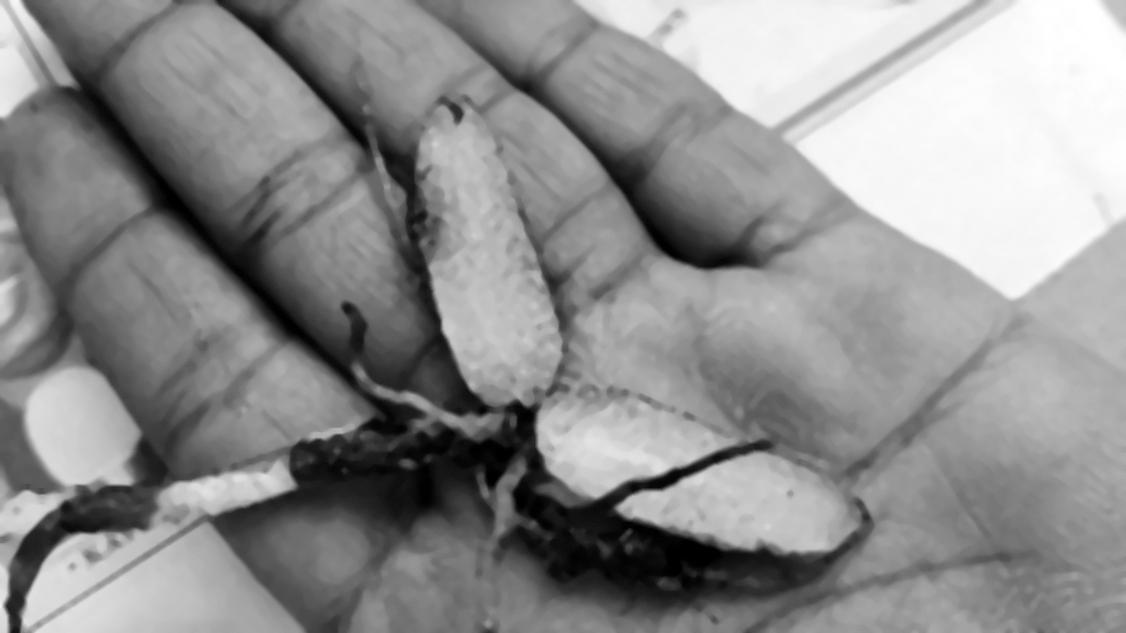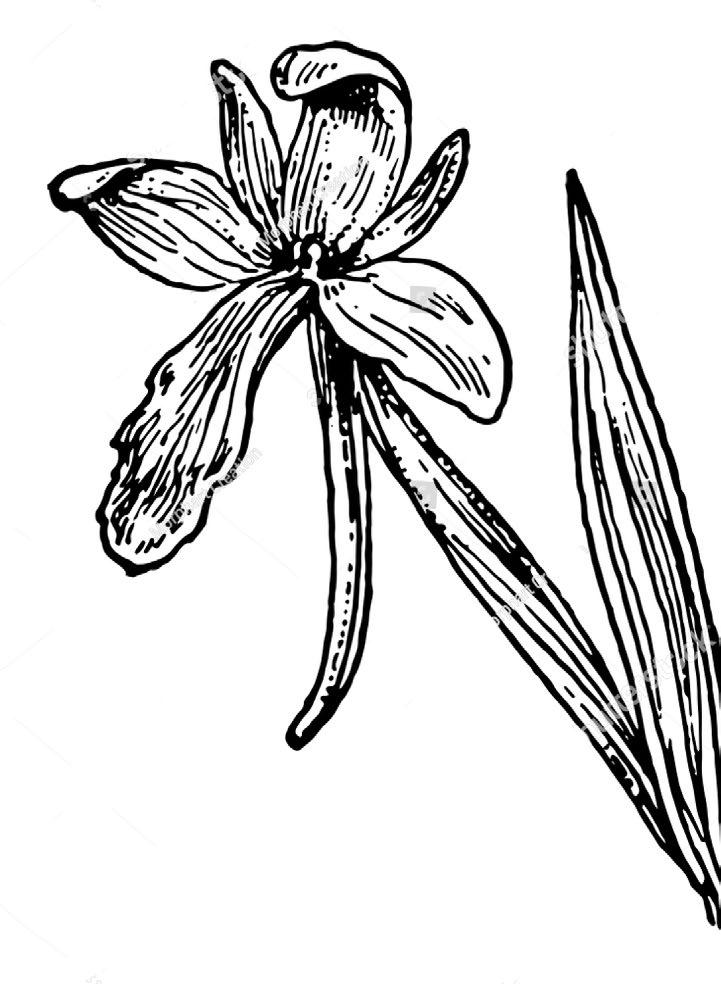
6 minute read
SPOTLIGHT ON CHIMWEMWE TEMBO
BY ALEX EVANS
“Understanding indigenous food systems means respecting the tradition that surrounds many of the plants and acknowledging both old and new technical local knowledge,” says Chimwemwe Tembo, currently pursuing a PhD in Sustainable Agriculture at Stellenbosch University in South Africa.
Photo credit: Chimwemwe Tembo E xperimental biology is such an incredibly diverse and far-reaching topic, but the core tenet is always to better understand the natural world. However, for some researchers, this natural understanding is closely entwined with our understanding of the human world too. Chimwemwe Tembo, a Zambian citizen currently living in South Africa, is committed to developing the conservation and sustainable utilisation of underutilised, indigenous foods and useful plants. “My interest in agricultural research began during visits to my mother’s home village,” she says. “This motivated my pursuit of a bachelor’s degree in Agricultural sciences at the University of Zambia.”
It was during the final year of her degree that Chimwemwe that got practical experience investigating the performance of cotton (Gossipium spp) growing under the Musangu tree (Faidherbia albida) canopy. “There was much interest at this point on the soil fertility enhancing qualities of Musangu leaves and the impact this could have on reducing the dependence on fertilisers within the resource-poor small-scale farming communities,” she explains. Her interest in indigenous natural resources continued into her master’s degree at Stellenbosch. This time, her focus was on the agronomic potential of edible fynbos vegetables such as dune spinach and sout slaai (Tetragonia decumbens and Mesembryanthemum crystallinum respectively) as a sustainable food and nutrient resource for local Western Cape communities. “The regenerative quality of multiple wild vegetables from the South Africa’s fynbos rich biodiversity has been evident for a long time,” she says. “The goal of the research was to generate and explore evidence-based data to support the cultivation of these alternative yet forgotten foods - especially considering the urgent need to adapt to changes brought about by climate change and diminishing biodiversity.”
As well as the traditional experimental methods of fieldwork, lab tests and data analysis, Chimwemwe’s research is heavily invested in understanding the economic viability, social equity, and environmental protection that helps to balance the need to harvest edible orchids while safeguarding their conservation. “In many countries, agricultural support and research is heavily focused on exotic and heavy soil nutrient feeding crops to the exclusion of wild foods,” says Chimwemwe. “It is vital to recognise that a sustainable agricultural system includes the cultivation of indigenous foods as a sustainable tool for agrobiodiversity.”
Now, during her PhD, the Africa’s edible orchids as a source of sustainable agriculture for resourcepoor communities have captured her attention. “Indigenous foods are special because they contribute to health, food, and nutrition security, are more resilient to climate change, and provide a potential source of income for local communities,” she explains. “Many of these wild foods also grow in abundance despite growing in nutrient deficient soils and dry climates indicating they would require less inputs for their production.”
With this new understanding of how to approach research, Chimwemwe began her PhD on the sustainable use of edible orchid tubers. “In Southern Africa, multiple terrestrial orchid tubers are used as an ingredient in a plant-based meat-like delicacy also called African polony or chikanda,” she says. Chimwemwe has enjoyed chikanda for as long as she can remember and says that the knowledge of how to make it well and which species are best to use is very specialised. “One area of research would be to identify which species are now being used because with more utilisation of the orchids, species that usually wouldn’t be harvested are now being used to compensate for the depleted species,” she adds. Chimwemwe is quick to point out that while orchid tubers are a well-known food resource in Africa, they can sometimes be seen as unusual to people living outside of Africa. “Interestingly, the fact that orchids are used as a food ingredient in Africa has been surprising to many people who view them primarily as ornamentals,” she says. “This is not that strange as the vanilla bean also comes from an orchid, and in Eastern Europe, Salep orchids are often used to make a drink and ice-cream enjoyed by locals!”
“These orchids are currently wild harvested, eaten and traded as a source of income for resourcepoor communities,” she explains. However, the use of these orchids is complex as they are

protected by the Convention on International Trade in Endangered Species treaty (CITES) as well as national and regional legislation. “They’re not supposed to be traded between counties without a permit – but many species of African orchids haven’t yet been evaluated and many aren’t even listed,” she explains. “A lot of resource-poor communities that harvest these orchids and sell them to neighbouring countries such as Tanzania and Malawi are unaware that this is type of trading has been criminalised.”
“For example,” says Chimwemwe, “on the border of Zambia and Tanzania, there is a tribe that exists across both countries, so when they trade, they are trading within their own community – but this is still breaking international law.” However, the protection of these orchids is still very important because many species of edible orchids have already become depleted in Zambia, and this is one area that Chimwemwe is very interested in helping to remedy.
In 2017, Chimwemwe travelled to the Dahatmara Institute India as part of a course on regenerative food systems. “This was an immersive learning experience that exposed me to agroecology as practiced by local farmers,” she explained. “This experience really impressed upon me the importance that indigenous food and knowledge systems have in addressing many chronic challenges faced in the global South and especially poor African communities.” She describes how the institute is actively promoting more ecological and sustainable types of farming systems that invest in natural resources. “We went around to see some of the farmers who have successfully implemented these systems,” Chimwemwe says. “It was really encouraging to see that what we had been learning about in class was not just theory – here is a system that is actually working and we need more demonstrations from real world people in those situations.”

Ultimately, Chimwemwe hopes that her research will contribute to contribute to the development of a low-cost micropropagation or domestication protocol for viable African edible orchid seeds. “The goal would be to develop a model for an orchid culture nursery and farm that can be run by any farmer right in the villages where edible wild orchids are naturally harvested for food or sale,” she explains. “I think that equipping the farmer with this skill gives them the power to own the resource in a way that not only provides a source of income and food but also importantly facilitates the conservation of these protected species.”
INDEIGENOUS FOODS ARE SPECIAL.
Chimwemwe has some advice for early career researchers that are looking to get the most out of their research and its real-world applications. “Find out about complexity and systems theory if you haven’t already!” For example, throughout her University education, Chimwemwe has been studying lots of different agricultural subjects in isolation but it wasn’t always clear how they were connected. “Learning complexity theory has really helped me to tie these things together,” she explains. “We deal with complex systems all around us all the time, which can be broken down into component parts to see how certain issues can be dealt with and in context around the problem.”
Finally, Chimwemwe wishes to acknowledge the amazing people who have supported her research journey so far: “My family, my supervisors Ethel Phiri and Rhoda Malgas and the special lady doing amazing work in Western Cape wild foods, Loubi Rusch, without whom the research would not have been a success.”
Left Orchid tuber harvested for preservation Photo credit: Chimwemwe Tembo










